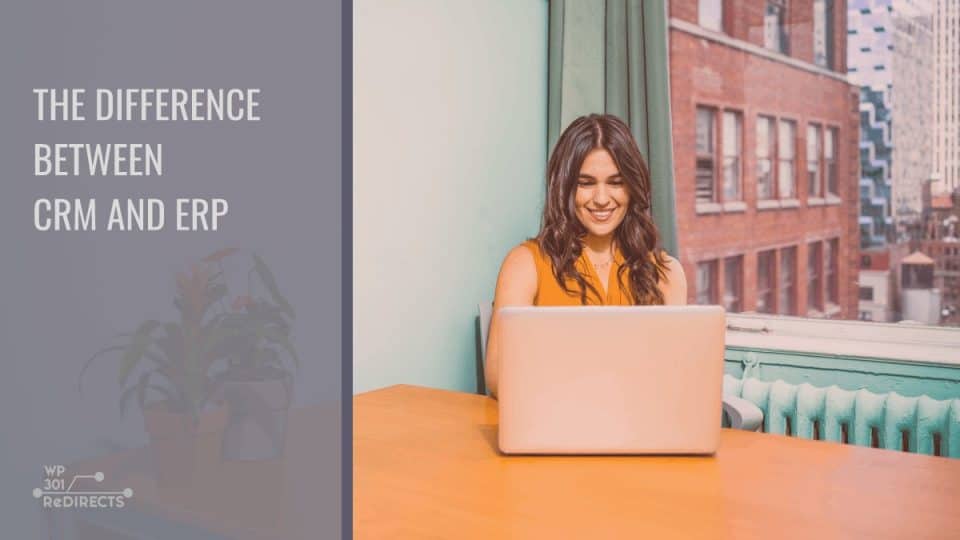When it comes to boosting profitability, ERP systems and CRM systems are quite different. ERPs are designed to minimize costs and overhead by automating processes. The ERP’s efforts have improved efficiency and lowered company procedure costs. On the other hand, Customer Relationship Management (CRM) systems are designed to boost profitability by increasing sales.
Do you know what the difference between CRM and ERP is? As a result, everyone involved—from the CEO to the sales representative—can use customer data more and cultivate deeper bonds with their clients, boosting revenue and increasing customer loyalty.
ERP vs. CRM: Pricing and Licensing
ERP systems provide more features than CRM systems because they’re more costly. Due to the complexity and specialized nature of ERP systems, they are difficult to design, develop, and implement. In addition, the cloud infrastructure may be too costly for hosting so many services. Labor, software, and hardware costs might total millions of dollars. From $79 to $799 per month, ERP software for small enterprises like Microsoft Dynamics 365 and Trade Gecko is accessible without large development fees.
Because of its scalability, Microsoft Dynamics can expand with your company. Standalone CRM software costs may range from free to hundreds of dollars per year, based on various aspects, such as the number of users, the kind of features, and the degree of customization available, as well as whether the program is hosted on-premises or in the Cloud. In contrast to ERP prices, which may be expensive for many small businesses, small businesses can purchase feature-rich, non-enterprise-level CRMs for $20 to $80 per user every month (not a definitive range).
How much do you need in terms of ERP and CRM?
A lot will rely on what you want the application to perform before you decide whether or not you need an ERP or CRM. As long as you’re comfortable with the accounting and HR software you’re currently using, all you need is a new CRM system to boost sales and marketing. Another alternative is investing in an ERP system if your business is fast expanding or you want to replace all the many types of software it now uses. For accounting-focused firms, using a CRM for accountants can also help manage clients, track financial interactions, and simplify reporting, making it an ideal complement to your existing tools.
Increasing your company’s productivity and profitability is the goal of both systems, but they do this in different ways. To put it another way, consider a wide range of criteria before deciding on the best software for your company.
Businesses should have an ERP and a CRM system to manage client data in the best-case scenario. However, it isn’t a need. For SMBs, CRM software is needed, but an ERP system isn’t necessary until you’re ready to grow and push your firm into new territory. Even if you reach that point, the ERP you choose may have one fundamental problem that makes it inappropriate for your firm. ERPs. CRM is a failure. The good information is that today’s technology makes it easier than ever to integrate CRM solutions with your ERP.
You can choose to use two different programs at the same time. For customized orders, CPQ software is used by sales professionals and staff to estimate the cost. Because of this, it is an ERP and CRM-dependent solution. If you want a good CPQ system, your organization will need both ERP and CRM software.
ERP vs. CRM Advantages and Disadvantages
Finding the most important system for your business may be compared to choosing between the best power supply and the greatest driver. What’s the difference between CRM and ERP? ERP vs. CRM is a debate around the importance of customer relationship management (CRM) to companies of all kinds. ERPs such as Ax Amazon provide the same function for organizations that a steering wheel does for a car. The administration of a company’s primary source of revenue: its customers, is made easier by using CRM as a first step. CRM is a wonderful choice for your first investment if your firm is starting.
Even the world’s largest firms can’t survive if they can’t produce and maintain sales. You may be able to avoid an ERP if your CRM is doing its job and you are using it correctly. Expanding operations need more than one software application. Additional software is required for procurement, production (if you’re in the manufacturing business), and related costs. If an ERP can assist, that’d be great! An ERP may help you manage your company’s resources effectively and efficiently. ERP is a one-stop shop for all departments and processes in your business.
ERP systems might take some time to understand and implement for those new to automation. Most ERPs need extensive training before they can be used effectively. However, a corporation may still get the advantages of an ERP and CRM while reducing their negative consequences. The CRM system not only increases revenue but also lowers operating expenses. These resources may help a business achieve its growth and efficiency objectives when used in concert. The company’s growth may be hampered even if ERP and CRM systems are used separately.
Conclusion
You may still require rudimentary CRM connectivity if your company is large enough to use an accounting application to track transactions. Human spreadsheet input is becoming more uncommon as cloud computing and on-demand data take control. It is done because of concerns about internet privacy and cloud computing.
